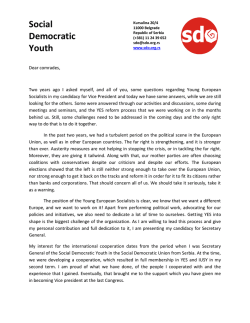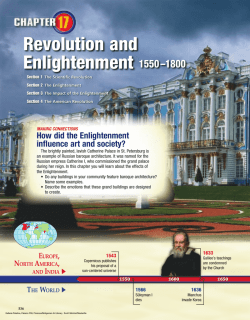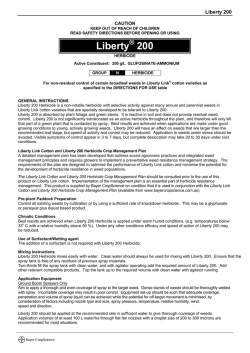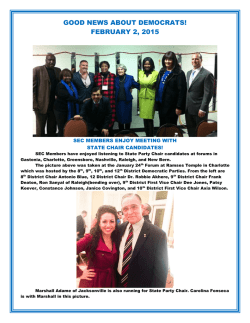
Activity Three: The Enlightenment
Activity Three: The Enlightenment TEACHER DEBRIEFING SHEET PLEASE NOTE: Each round must deal with a different controversial issue. It is critical that this be laid out as an expectation for the next round during the previous round’s debriefing. Discussion Questions: 1. What is the difference between the “state of nature” and “civil society?” Which would you rather live in and why? 2. What is the role and responsibility of government, with respect to its citizens, in Hobbes’, Locke’s, Rousseau’s, and Montesquieu’s philosophies? 3. How do Hobbes, Locke, Rousseau, and Montesquieu define liberty? Which philosopher’s definition of liberty do you most agree with and why? 4. Why does Rousseau see the process of making democratic laws as so complicated and dangerous? Do you agree or disagree with Rousseau? Justify your answer. 5. What social problems are shown in the three Enlightenment era political cartoons? What would Hobbes, Locke, Rousseau, and Montesquieu each have to say about these social ills? 6. What controversial issues are shown in the modern-day political cartoons? What would Hobbes, Locke, Rousseau, and Montesquieu each have to say about these issues? 7. What are the enduring effects of the ideas of the Enlightenment philosophers on the world-wide expectation for self-government and individual liberty? Task: Present a skit or debate on a modern-day controversial issue (abortion, gun control, the death penalty, assisted suicide, etc.) that uses the perspectives and arguments of Hobbes, Locke, Rousseau, and Montesquieu regarding fairness, equality, and rights. Task Evaluation Criteria: • Skit or debate accurately incorporates the perspectives held by Hobbes, Locke, Rousseau, and Montesquieu, focusing on their views on the concept of liberty and the role of government with respect to its citizens. • Skit or debate centers on a modern-day controversial issue and clearly includes the opinions Hobbes, Locke, Rousseau, and Montesquieu would have about this issue. • Skit or debate makes use of props and other relevant visuals. • Group presentation emphasizes the difference between a “state of nature” and a “civil society.” • Group discusses the enduring effects of the ideas of Hobbes, Locke, Rousseau, and Montesquieu on the worldwide political expectations for self-government and individual liberty. Extension Questions: 1. Do you agree more with Hobbes’ or Locke’s view of the nature of man? (Is man inherently good or inherently bad?) Why? If man is inherently good, how do you account for laws, prisons, the death penalty, etc.? If man is essentially bad, what does the future hold? 2. How do you interpret Rousseau’s concept of the “general will” and why do you think it has earned a lot of criticism? 3. What is the role of law in Locke’s concept of political society? 4. Describe how a “state of nature” differs from or is similar to a “civil society.” 5. Which would you prefer to live in, a “state of nature” or a “civil society?” Why? 6. What are the pros and cons of Montesquieu’s concept of divided government? 7. How do you think Rousseau defines liberty? 8. Why does Rousseau see the process of making democratic laws so complicated and dangerous? 9. What is meant by the “pursuit of happiness?” 10. How would you define your “inalienable rights” as a student in this classroom? 11. Which of the four philosopher’s ideas about government appeal to you most? Why? 12. What were some of the pressing social issues of the 17th and 18th centuries? 13. Which of these four Enlightenment philosophers influenced the development of the U.S. political system? How? 14. What is your opinion of Locke’s idea that if a government denies people basic rights then the people have the right to change the government? Has this happened anywhere in the world throughout history? If so, when and where? 15. What is your opinion about the controversial issue your group debated? Which philosopher’s point of view is most similar to yours? Democratic Ideals Revised 3/01 Property of the California International Studies Project and the Contemporary World History Project, not for distribution. Graphic Organizer Activity Three: The Enlightenment Fill in the matrix below, giving information for each of the four Enlightenment philosophers profiled in this activity. Philosopher Hobbes Locke Rousseau Montesquieu His Belief About the Nature of Man His Ideal Form of Government b b b b Democratic Ideals Revised 8/02 Property of the California International Studies Project and the Contemporary World History Project, not for distribution. Pre-Reading Guide Unit Big Idea/Question: Activity Three: The Enlightenment What Is Democracy After All? Activity Big Idea/Question: What are the enduring effects of the ideas of the Enlightenment philosophers on the worldwide political expectation for self-government and individual liberty? 1. What is the activity number? 2. What is the activity title? 3. Based on the activity title, make two predictions about what this activity will cover. #1: #2: 4. Examine the Discussion Questions on the Activity Card and for each question, check off the analytical process(es) asked for: Question #1 Question #2 Question #3 Question #4 Question #5 Question #6 Question #7 List Examples, Events, and/or Issues Agree/Disagree Compare/Contrast Identify Advantages and Disadvantages Examine Cause and Effect Relationships Make Connections Give Your Opinion Provide Evidence Examine Consequences 5. How many different kinds of visuals can you identify in the Resource Cards? Resource Card 1 2 3 4 5 6&7 Maps Democratic Ideals Graphs Photographs Timelines Cartoons Charts Revised 8/02 Property of the California International Studies Project and the Contemporary World History Project, not for distribution. Pre-Reading Guide Activity Three: The Enlightenment 6. Turn the title of each Resource Card into two questions, one factual, the other analytical and connected to the big idea. Resource Card 1: Thomas Hobbes, British Philosopher Factual Question Analytical Question Resource Card 2: John Locke, British Philosopher Factual Question Analytical Question Resource Card 3: Jean-Jacques Rousseau, Swiss Philosopher Factual Question Analytical Question Resource Card 4: Baron de Montesquieu, French Philosopher Factual Question Analytical Question Resource Card 5: Social Issues of the 17th & 18th Centuries Factual Question Analytical Question Resource Cards 6 & 7: Modern-Day Political Cartoons Factual Question Analytical Question Democratic Ideals Revised 8/02 Property of the California International Studies Project and the Contemporary World History Project, not for distribution. VOCABULARY KNOWLEDGE RATING ACTIVITY 3: THE ENLIGHTENMENT Directions: Decide how well you and your group know each of the words/phrases below by checking your knowledge for each. Put each group member’s name in the proper category. Tally how many students actually know each word/phrase. Once you have rated a word/phrase, whoever knows the definition must share that knowledge with the rest of the group. Finally, use a dictionary to confirm and/or enrich the group’s understanding of the word/phrase. Word enlightened civil state of nature social contract inalienable commonwealth assisted suicide affirmative action exonerate body politic divest legislative anarchy magistrate affirmative action Can Define/Use It Heard It/Seen It Don’t Know It Definition Activity Three: The Enlightenment ACTIVITY CARD During the 1700’s, European philosophers thought that people should use reason to free themselves from ignorance and superstition. They believed that people who were “enlightened” by reason could perfect themselves and society. As a result, this period is often called the Enlightenment. Among the most prominent of the Enlightenment philosophers were Thomas Hobbes, John Locke, Jean-Jacques Rousseau, and Baron de Montesquieu. The Enlightenment may be seen as a product of the vast changes that took place in Europe during the sixteenth and seventeenth centuries, during the Renaissance, the Reformation, and the Scientific Revolution. These changes produced the social values that permitted the Enlightenment to sweep through Europe in the late seventeenth and eighteenth centuries. The Enlightenment had its foundation in three new theories about human beings: 1) Individualism stressed the importance of the individual and his rights as a citizen; 2) Relativism consisted of the concept that different ideas, cultures, beliefs, and value systems had equal merit; 3) Rationalism was the conviction that using the power of reason, humans could arrive at truth and make progress toward improving human life. During the 1700’s, Enlightenment ideas spread across Europe and the Atlantic to the Americas. Through books and newspapers, in coffeehouses and at informal gatherings, people heard the call for reform. Some of Europe’s rulers even supported Enlightenment ideas. In some nations, these “enlightened monarchs” ended serfdom and allowed religious freedom. Directions: Read the resource cards and analyze the visuals. Discuss the following questions with your group. 1. What is the difference between the “state of nature” and “civil society?” Which would you rather live in and why? 2. What is the role and responsibility of government, with respect to its citizens, in Hobbes’, Locke’s, Rousseau’s, and Montesquieu’s philosophies? 3. How do Hobbes, Locke, Rousseau, and Montesquieu define liberty? Which philosopher’s definition of liberty do you most agree with and why? 4. Why does Rousseau see the process of making democratic laws as so complicated and dangerous? Do you agree or disagree with Rousseau? Justify your answer. 5. What social problems are shown in the three Enlightenment era political cartoons? What would Hobbes, Locke, Rousseau, and Montesquieu each have to say about these social ills? 6. What controversial issues are shown in the modern-day political cartoons? What would Hobbes, Locke, Rousseau, and Montesquieu each have to say about these issues? 7. What are the enduring effects of the ideas of the Enlightenment philosophers on the world-wide expectation for self-government and individual liberty? Task: Present a skit or debate on a modern-day controversial issue (abortion, gun control, the death penalty, assisted suicide, etc.) that uses the perspectives and arguments of Hobbes, Locke, Rousseau, and Montesquieu regarding fairness, equality, and rights. Democratic Ideals Revised 3/01 Property of the California International Studies Project and the Contemporary World History Project, not for distribution. Activity Three: The Enlightenment TASK EVALUATION CRITERIA • Skit or debate accurately incorporates the perspectives held by Hobbes, Locke, Rousseau, and Montesquieu, focusing on their views on the concept of liberty and the role of government with respect to its citizens. • Skit or debate centers on a modern-day controversial issue and clearly includes the opinions Hobbes, Locke, Rousseau, and Montesquieu would have about this issue. • Skit or debate makes use of props and other relevant visuals. • Group presentation emphasizes the difference between a “state of nature” and a “civil society.” • Group discusses the enduring effects of the ideas of Hobbes, Locke, Rousseau, and Montesquieu on the worldwide political expectations for self-government and individual liberty. Democratic Ideals Revised 3/01 Property of the California International Studies Project and the Contemporary World History Project, not for distribution. Activity Three: The Enlightenment RESOURCE CARD 1 Thomas Hobbes, British Philosopher Thomas Hobbes argued that humans were naturally cruel, greedy, and selfish. If not strictly controlled, they would fight, rob, and oppress one another. Life in a “state of nature” – without laws or other controls – would be “solitary, poor, nasty, brutish, and short.” To escape that “brutish” life, people enter into a social contract with a ruler, giving the ruler absolute power in order to prevent anarchy. Leviathan (1651) …if any two men desire the same thing, which nevertheless they cannot both enjoy, they become enemies…Hereby it is manifest that during the time men live without a common power to keep them all in awe, they are in that condition which is called war; and such a war as is of every man against every man… It followeth that in such a condition every man has a right to every thing, even to one another's body. And therefore, as long as this natural right of every man to every thing endureth, there can be no security to any man, how strong or wise soever he be, of living out the time which nature ordinarily alloweth men to live. And consequently it is a precept, or general rule of reason: that every man ought to endeavour peace, as far as he has hope of obtaining it; and when he cannot obtain it, that he may seek and use all helps and advantages of war… From this fundamental law of nature, by which men are commanded to endeavour peace, is derived this second law: that a man be willing…to lay down this right to all things; and be contented with so much liberty against other men as he would allow other men against himself. For as long as every man holdeth this right, of doing anything he liketh; so long are all men in the condition of war. But if other men will not lay down their right, as well as he, then there is no reason for anyone to divest himself of his: for that were to expose himself to prey, which no man is bound to, rather than to dispose himself to peace. This is that law of the gospel: Whatsoever you require that others should do to you, that do ye to them… Democratic Ideals Revised 3/01 Property of the California International Studies Project and the Contemporary World History Project, not for distribution. Activity Three: The Enlightenment RESOURCE CARD 2 John Locke, British Philosopher John Locke thought that people were basically reasonable and moral. He argued that man had certain inalienable rights that no government could deny. These included the right to life, liberty, and property. According to Locke, the best kind of government had limited power and was accepted by all citizens. Locke rejected the idea of absolute monarchy. He believed that if a government attempted to deny people their natural rights, then the people had the right to replace the government. Second Treatise of Civil Government (1690) Wherever, therefore, any number of men so unite into one society as to quit every one his executive power of the law of Nature, and to resign it to the public, there and there only is a political or civil society. And this is done wherever any number of men, in the state of Nature, enter into society to make one people one body politic under one supreme government: or else when any one joins himself to, and incorporates with any government already made. For hereby he authorises the society, or … the legislative thereof, to make laws for him as the public good of the society shall require… And this puts men out of a state of Nature into that of a commonwealth, by setting up a judge on earth with authority to determine all the controversies and redress the injuries that may happen to any member of the commonwealth, which judge is the legislative or magistrates appointed by it. And wherever there are any number of men, however associated, that have no such decisive power to appeal to, there they are still in the state of Nature… And hence it is evident that absolute monarchy, which by some men is counted for the only government in the world, is indeed inconsistent with civil society, and so can be not form of civil government at all… These are the bounds which the trust that is put in them by the society and the law of God and Nature have set to the legislative power of every commonwealth, in all forms of government. First: They are to govern by…established laws, not to be varied in particular cases, but to have one rule for rich and poor… Secondly: These laws also ought to be designed for … the good of the people. Thirdly: They must not raise taxes on the property of the people without the consent of the people given by themselves or their deputies. …Fourthly: Legislative neither must nor can transfer the power of making laws to anybody else, or place it anywhere but where the people have. Democratic Ideals Revised 3/01 Property of the California International Studies Project and the Contemporary World History Project, not for distribution. Activity Three: The Enlightenment RESOURCE CARD 3 Jean-Jacques Rousseau, Swiss Philosopher Rousseau believed that people were basically good but were corrupted by society. In an ideal society, people would make the laws and would obey them willingly. Rousseau put his faith in the “general will” – the will of the majority. According to Rousseau, the problem of government was that too few people had control over the masses. The Social Contract (1762) The passage from the state of nature to the civil state produces a very remarkable change in man, by substituting justice for instinct in his conduct, and giving his actions the morality they had formerly lacked. Then only, when the voice of duty takes the place of physical impulses and right of appetite, does man, who so far had considered only himself, find that he is forced to act on different principles, and to consult his reason before listening to his inclinations. Although, in this state, he deprives himself of some advantages which he got from nature, he gains in return others so great, his faculties are so stimulated and developed, his ideas so extended, his feelings so ennobled, and his whole soul so uplifted, that, did not the abuses of this new condition often degrade him below that which he left, he would be bound to bless continually the happy moment which took him from it for ever, and, instead of a stupid and unimaginative animal, made him an intelligent being and a man… We might, over and above all this, add, to what man acquires in the civil state, moral liberty, which alone makes him truly master of himself; for the mere impulse of appetite is slavery, while obedience to a law which we prescribe to ourselves is liberty … Laws are, properly speaking, only the conditions of civil association. The people, being subject to the laws, should be the authors of them. The rules of society should be set solely by its members. But how will they be determined? Will it be by a common agreement or by a sudden inspiration? Has the body politic an organ for expressing its will? Who will give it the foresight necessary to frame its acts and publish them in advance? Or how shall it declare them in the hour of need? How would a blind multitude, which often does not know what it wants (because it rarely knows what is good for it) carry out all by itself an enterprise as great and as difficult as a system of legislation? Left to itself, the people always desires what is good, but it does not always understand what that means. The general will is always right, but the judgment which guides it is not always enlightened… Democratic Ideals Revised 3/01 Property of the California International Studies Project and the Contemporary World History Project, not for distribution. Activity Three: The Enlightenment RESOURCE CARD 4 Baron de Montesquieu, French Philosopher Charles-Louis de Secondat, the Baron de Montesquieu, studied politics throughout his life and wrote a huge and exhaustive study of government. One of his key views was that authority should be divided. He believed that each branch of government should serve as a check on the other branches. The Spirit of the Laws (1748) In every government there are three sorts of power; the legislative; the executive, in respect to things dependent on the law of nations; and the executive, in regard to things that depend on the civil law. By virtue of the first [power], the prince or magistrate enacts temporary or perpetual laws, and amends or abrogates those that have been already enacted. By the second [power], he makes peace or war, sends or receives embassies; establishes the public security, and provides against invasions. By the third [power], he punishes criminals, or determines the disputes that arise between individuals. The latter we shall call the judiciary power, and the other simply the executive power of the state. The political liberty of the subject is a tranquillity of mind, arising from the opinion each person has of his safety. In order to have this liberty, it is requisite the government be so constituted as one man need not be afraid of another. When the legislative and executive powers are united in the same person, or in the same body of magistrates, there can be no liberty; because apprehensions may arise, lest the same monarch or senate should enact tyrannical laws, to execute them in a tyrannical manner. Again, there is no liberty, if the power of judging be not separated from the legislative and executive powers. Were it joined with the legislative, the life and liberty of the subject would be exposed to arbitrary control, for the judge would then be the legislator. Were it joined to the executive power, the judge might behave with all the violence of an oppressor. There would be an end of every thing were the same man, or the same body, whether of the nobles or of the people[,] to exercise those three powers[:] that of enacting laws, that of executing the public resolutions, and that of judging the crimes or differences of individuals. Democratic Ideals Revised 3/01 Property of the California International Studies Project and the Contemporary World History Project, not for distribution. Activity Three: The Enlightenment RESOURCE CARD 5 Social Issues of the 17th & 18th Centuries At left, a caricature satirizing the inequality of taxation in Europe during the 17th century. It represents a peasant carrying on his back a judge, a bishop, and a nobleman. Below, left, an 18th century British print exposing lack of liberty. Repeated protests arose against restrictions imposed by monarchies. The aim of these restrictions was to repress liberals whose ideas might endanger the monarchies. An effective means of doing this was control of public opinion. Below, right, the 17th century French political cartoon “The Spider and the Fly.” The caption on the lower left side of this illustration states, “The noble is the spider, the peasant the fly.” The caption on the upper right notes, “The more people have, the more they want. The poor man brings everything – wheat, fruit, money, vegetables. The greedy lord sitting there ready to take everything will not even give him the favor of a glance.” Democratic Ideals Revised 3/01 Property of the California International Studies Project and the Contemporary World History Project, not for distribution. Activity Three: The Enlightenment RESOURCE CARD 6 Modern-day Political Cartoons Democratic Ideals Revised 3/01 Property of the California International Studies Project and the Contemporary World History Project, not for distribution. Activity Three: The Enlightenment RESOURCE CARD 7 Modern-day Political Cartoons Democratic Ideals Revised 3/01 Property of the California International Studies Project and the Contemporary World History Project, not for distribution. Activity Three: The Enlightenment INDIVIDUAL REPORT What position do you take regarding the debate between living in a “state of nature” or living in a “civil society”? Explain in detail your reasons for taking the position you have chosen, and how your thinking compares to that of Thomas Hobbes, John Locke, Jean-Jacques Rousseau, and Baron de Montesquieu. How have the philosophies of these four thinkers contributed to the concept of democracy? Evaluation Criteria • Response demonstrates an understanding of both a “state of nature” and a “civil society.” • Response states which you would prefer, to live in a “state of nature” or a “civil society.” and includes at least three reasons for your decision. • Response includes a comparison between your thoughts and those of Thomas Hobbes, John Locke, Jean-Jacques Rousseau, and Baron de Montesquieu. • Response includes an explanation of the extent to which Thomas Hobbes, John Locke, Jean-Jacques Rousseau, and Baron de Montesquieu contributed to the concept of democracy. Democratic Ideals Revised 3/01 Property of the California International Studies Project and the Contemporary World History Project, not for distribution.
© Copyright 2026



